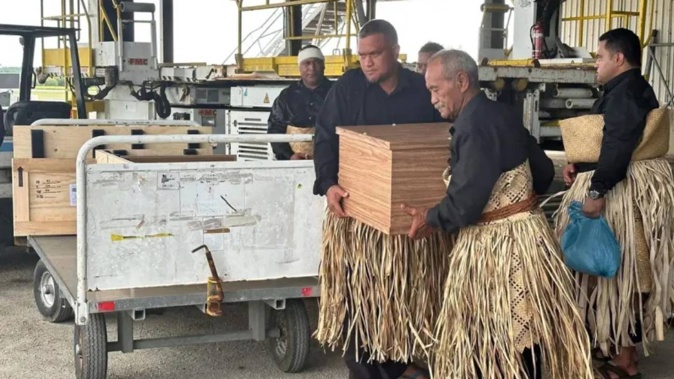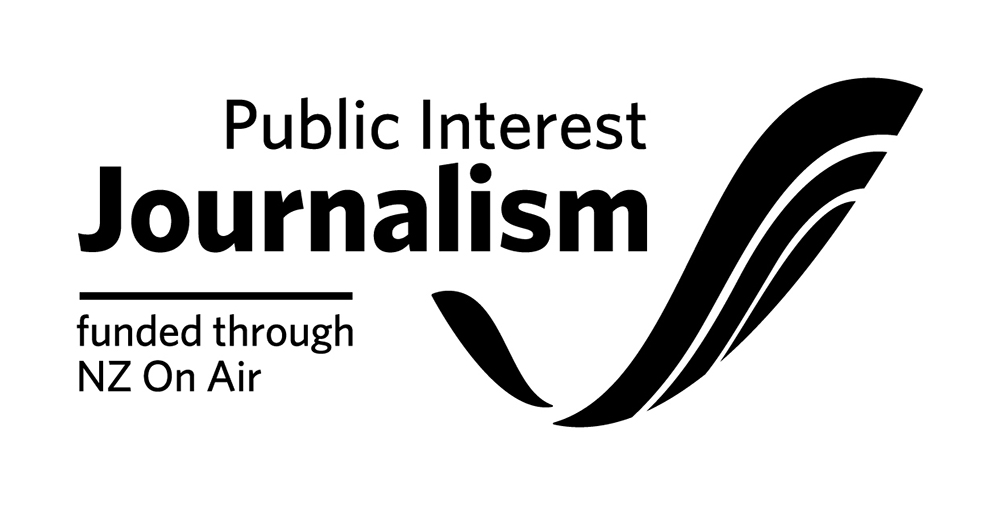
Tongan ancestral remains held in an Australian museum for almost 150 years have been safely returned to the island kingdom.
Tonga’s embassy in Australia first became aware of the ancestral remains - the skulls of a child and a man - in 2021.
The next year, embassy officials began notifications with the Australian Museum, based in Sydney, to have the remains returned to their rightful island home.
Little information and knowledge is known about the two people - only that one was a young boy and the other an older man.
Sacred remains include that belonging to boy
With no record of who they were, Tongan King Tupou VI bestowed them the names Palu ‘Ata (1975) and Tupou ‘Ata (1969).
It is thought that Palu ‘Ata was about 10 years old when he died of unknown causes.
The youngster had been buried on Tonga’s ‘Ata island and his remains were taken by scientists in 1875.
/cloudfront-ap-southeast-2.images.arcpublishing.com/nzme/MUG4VQBYXZDBRF4MJJJQW5VDSE.jpg) The remains were originally from the island of 'Ata, about 160km south-south-west of Tonga's main island, Tongatapu. Image / Google
The remains were originally from the island of 'Ata, about 160km south-south-west of Tonga's main island, Tongatapu. Image / Google
The circumstances surrounding that incident are not known. However, it is understood there was interest in evolution at the time and a fascination with the Polynesian physique.”
Tupou ‘Ata was an old man whose remains had been in the museum’s collection since 1969.
Before their repatriation to Tonga, a ceremony was held in Sydney last month to properly prepare the remains according to Tongan traditions and cultural customs.
Unethical practices of the past
This week, a special funeral service was held and a funeral procession carried the sacred remains to ‘Eua Island. They were laid to rest in the Fele’ave Cemetery in the village of Kolomaile.
Both the King and Queen of Tonga attended the ceremony; as well as their daughter Princess Angelika Tuku’aho, who played a prominent role in the repatriation.
At the service, Australian Museum’s first nations director Laura McBride apologised for the unethical practices they had sometimes used in the past.
Acting High Commissioner Tuihalangiengie said he is happy the remains have been returned and hopes more people learn about the history of Australia’s involvement in the Pacific.
/cloudfront-ap-southeast-2.images.arcpublishing.com/nzme/2ADZPTI5GRDX3APITA774ABB7Q.jpg) The ancestral remains of two Tongans housed at a museum in Australia have been returned to the island kingdom.
The ancestral remains of two Tongans housed at a museum in Australia have been returned to the island kingdom.
He talked about blackbirding - a practice in the 1800s that saw Pacific Islanders tricked into slavery - and the involvement of Australian ships, where people were kidnapped from Tonga and enslaved in Peru.
“I think the most important part is for us to work together in partnership. Learn from the past and to share the history.
“We should not bury it, we should not cover it. It is important for our people to be aware that this happened.
“It is an unfortunate part of our history.”
Although their stories are not fully known, an effort is now underway to try to find out more about who they were to honour their memory.
‘Alakihihifo Vailala is one of 12 cadets in the Te Rito journalism programme, which has a focus on training more culturally diverse reporters to ensure newsrooms reflect Aotearoa’s multicultural society. ‘Ala is a proud Tongan and has a keen interest in writing stories about her community.

Take your Radio, Podcasts and Music with you









